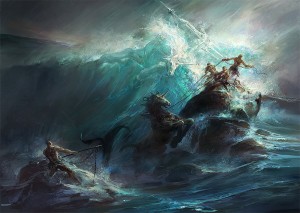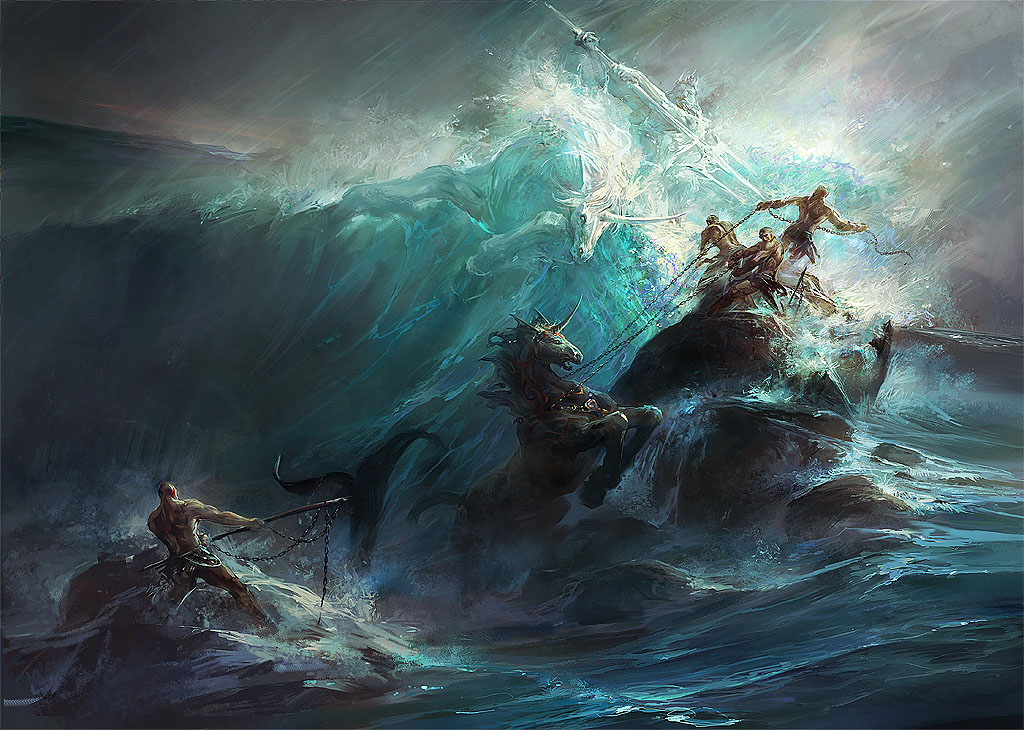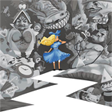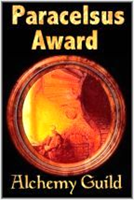
Poseidon is one of the mightiest Olympian gods, second in prominence only to Zeus. Together with a host of other gods and goddesses that included the latter, Hades, Hestia and Hera, Poseidon is the spawn of the Titans Cronus, or Father Time and Rhea, the Earth Mother. An explicit reference in Homer’s Iliad expounds the notion that when Cronus divided the cosmos up amongst his children, Zeus received the heavens as his dominion, Pluton (Hades) the underworld and Poseidon the sea.
Poseidon is a master, a king, an all-powerful magician of the water element. In fact, one could say that the world’s oceans, seas, rivers, lakes, geysers and streams all danced to his changing temperament and disposition. Given that the Greeks lived on lands circumscribed by water, their dependence upon the seas tranquil mode of being was fundamental to their existence. Because it pervaded nearly all areas of their lives, one was bound to encounter a deep-seated and profound reverence for Poseidon wherever they ventured. Foremost amongst his personal belongings was a bejewelled palace that sprung up from the ocean bed, a golden chariot and a three-pronged or forked spear which imitated the wand of the Great Mother Goddess or medieval and Renaissance witches and wizards. The latter is a double-edged blade of both seedy generation and fiery destruction. With it he could stir up whitebeards and waterspouts from the depths of the seas or instigate the tranquillity of doldrums; he could make the sea navigable or unnavigable, whenever he so wished or desired. Striking the trident against the ground usually resulted in far-reaching consequences that included but were not exclusive to the formation of islands springs and geysers, drowning and shipwrecks, as well as destructive earthquakes. The latter is the principle reason why he gained the dreaded epithets Enosichthon, Seischthon and Ennosigaios, all of which denote “Earth-shaker”.
According to most classical sources, Poseidon wed one of the fifty daughters of Nereus (and granddaughter of the Titan Oceanus), the sea nymph Amphitrite and sired a plethora of children, both gods and demi-gods. Many acquired a disconcerting habit of growing into fearsome giants. Titius, his son by Elara, daughter of Orchomenus, his son Orion by Euryale, as well as the handsome twins Otus and Ephialtes, his sons by Iphimedeia, daughter of King Triopas of Thessaly, were all Herculean in stature. By far his most flamboyant and outlandish children were his progeny by Amphitrite, the sea entities Proteus, Glaucus and Triton. Proteus was as elusive and enigmatic as the element under which he was born, possessing an inherent ability to change his form at will. Glaucus, on the other hand, was a prominent merman and seer with supernal aquamarine eyes and tufts of green seaweed for hair. Triton was also a merman who entertained the horde of sea demons and entities inhabiting the seas by belting out beautiful melodies on a conch shell, his version of the modern-day brass trumpet.
In the Trojan War, Poseidon takes the side of the Achaean (Greek) forces. His anti-Trojan sentiments stem from a bitter dispute with the king of the gods Zeus in which he emerges second best. Together with Apollo, he pays his repentance by agreeing to refashion the walls of Troy as a supplicant to the then King of Troy Laomedon. The promise of a hefty payment motivates both Poseidon and Apollo to commit to the task and perform to the best of their abilities. However a subsequent change of heart on the part of the king not to award the two Olympians angers Poseidon beyond reckoning, who conjures a behemoth of a sea serpent to attack the Trojan infidels. This single event represents the inception of Poseidon’s implacable hatred against the Trojan forces and elucidates why his sentimentalities remained with the Greeks until the great conflagration that eventually engulfed Troy unfolded.
In the ordered scheme of Mother Nature, the horse, the bull, as well as all forms of sea life were sacred to Poseidon. His Roman equivalent is Neptune.









